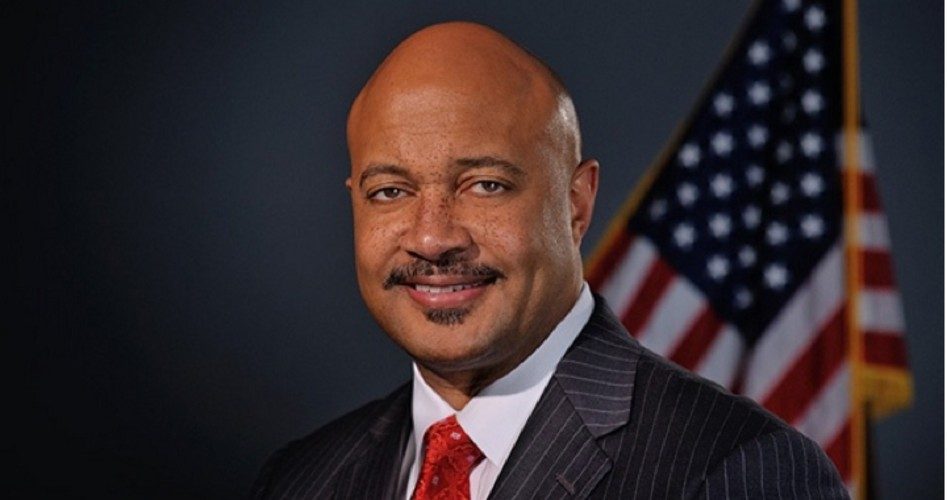
Indiana has asked the Supreme Court to weigh in on its 2017 law regarding parental notification for underage girls seeking abortions. Indiana’s Attorney General Curtis Hill (shown) asked the high court on Friday to affirm the constitutionality of the state’s 2017 Senate Enrolled Act 404, which requires parental notice when minors obtain abortions.
Under existing Indiana law, minors may obtain an exemption from juvenile court enabling them to proceed with an abortion without parental permission. Senate Enrolled Act 404 would require the parents of those minors to receive notification of the abortion, according to the press release from Hill’s office. The law does not apply to minors for whom a juvenile court has ruled that notifying parents is against the minor’s best interests, such as those who may live with abusive family members.
{modulepos inner_text_ad}
“Nothing in the U.S. Constitution prohibits Indiana from requiring parental notification when an unemancipated minor is getting an abortion,” Hill said. “Even to get a tattoo, a minor in Indiana needs parental permission. Quite simply, parents have rights and responsibilities in the care and upbringing of a child.”
Furthermore, Hill observes, the law is meant to protect the health and wellness of the child, as an abortion is a medical procedure with the potential for serious complications, both physical and mental, and even death.
“An abortion is a medical procedure that could have implications for a child’s future treatment,” he said. “It’s an event that could bear on a child’s emotional needs and mental health, and it’s an event that parents need to know about in order to provide nurturing care and guidance.”
Predictably, opponents to the law contend it poses an “undue burden” on abortion access.
Planned Parenthood of Indiana and Kentucky, represented by the American Civil Liberties Union of Indiana, challenged the law in Indiana Southern District Court shortly after the legislation was passed, and Senior Judge Sarah Evans Barker granted an injunction against the law.
“In some cases, parents aren’t available or would put the woman in serious danger of either physical or emotional harm of blocking the abortion,” ACLU attorney Ken Falk argued.
A divided three-judge panel of the Seventh Circuit U.S. Court of Appeals upheld the injunction against the Indiana law on the basis of “undue burden,” claiming it does not “survive the undue-burden balancing test that applies to regulation of adults,” but the dissenting judge, Judge Michael Kanne, argued such “burden” could only be speculated, the City-County Observer reports. In November, the court declined a petition for a rehearing before the full court, asserting the only court that can adequately determine how the “undue-burden standard” should be applied to Indiana’s law would be the U.S. Supreme Court.
“It is better to send this dispute on its way to the only institution that can give an authoritative answer,” wrote Judge Frank Easterbrook.
Hill seized on that assessment, noting the appellate court had difficulty wading through the applicable case laws, and moved forward with a petition to the High Court on Friday.
“When even the most experienced and distinguished members of the federal judiciary throw up their hands in confused frustration,” Attorney General Hill said, “it is time for our nation’s highest court to issue guidance.”
The petition for certiorari, prepared by Indiana Solicitor General Thomas M. Fisher, references the confusion created by Whole Woman’s Health v. Hellerstedt, which “has left lower court judges confused and conflicted over proper application of undue-burden doctrine.”
According to the petition, Indiana’s law is consistent with Bellotti v. Baird (1979), which held that minors have less protection from state regulation than adults. However, the Seventh Circuit Court applied Hellerstedt instead of Bellotti in its ruling. The petition asks the high court to “make it clear that Hellerstedt does not wipe out the Court’s prior abortion precedents,” such as Bellotti.
The petition elaborates,
While the Court in Hellerstedt purported merely to apply the undue-burden test from Planned Parenthood of Southeastern Pennsylvania v. Casey, 505 U.S. 833 (1992), many lower court judges have taken it to create an entirely new decisional rubric, one that not only raises the bar for States defending new abortion laws, but one that also undermines the Court’s own pre-Hellerstedt decisions and thereby reopens many standard abortion regulations to fresh constitutional scrutiny.
The petition contends the high court must take this opportunity to provide clarity on the application of pre-Hellerstedt rulings and the undue-burden standard created by Hellerstedt.
“More generally, this case also offers a chance to address multiple dimensions of the doctrinal havoc wrought by Hellerstedt,” Fisher wrote in the petition. “The decision below crystalizes many such issues, including the relevance of pre-Hellerstedt case holdings, the method for deciding pre-enforcement challenges under the undue-burden standard, the manner of balancing benefits and burdens under that standard, and the process for defining the fraction of women substantially burdened by an abortion regulation.”
As noted by Life News, parental notification laws have strong public support, with Gallup polls consistently showing 70 percent of Americans strongly favoring parental involvement for more than a decade. The Guttmacher Institute reports 37 states currently requiring some sort of parental involvement in a minor’s abortion.
Life News also reports such laws are invaluable protections for young women from abusive situations:
Sexual abusers have been known to take their young victims to abortion clinics when they become pregnant. In 2008, a Planned Parenthood in Bloomington, Indiana was exposed for agreeing to help cover up the alleged sexual abuse of a minor in an undercover sting.
In another case in Ohio, Planned Parenthood faced a lawsuit after it failed to report the statutory rape of a 14-year-old girl. The girl’s soccer coach got her pregnant and then took her to the abortion clinic to cover up his crime.
Even abortionist Bruce Lucero defended parental notification laws in a 1998 op-ed in the New York Times: “A parent’s input is the best guarantee that a teenager will make a decision that is correct for her—be it abortion, adoption or keeping the baby. And it helps guarantee that if a teenager chooses an abortion, she will receive appropriate medical care.”
Hill is confident Indiana’s law would pass constitutional muster.
“America’s founding documents should bode well” for the parental-notice law, he said in the press release.
Raven Clabough acquired her bachelor’s and master’s degrees in English at the University of Albany in upstate New York. She currently lives in Pennsylvania and has been a writer for The New American since January 2010.




